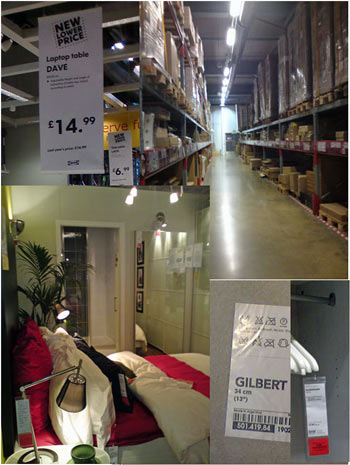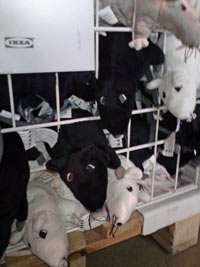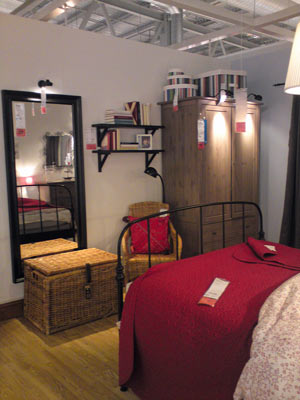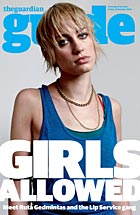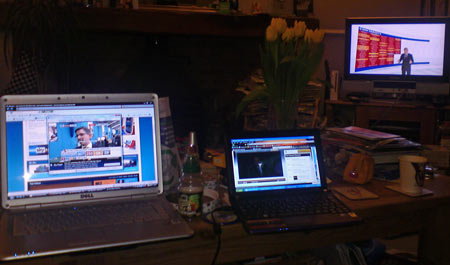Rarely can a novel have been so appropriately titled as Isabel Costello’s Paris Mon Amour. The city is so evocatively described it becomes one of the characters (Paris: Mon Amour, perhaps?). Also, the novel explores the contrasting romantic mores of two French men (Paris. Mon Amour, maybe?)

I’ve blogged before about the pleasure of seeing friends’ novels being transformed from Word documents e-mailed around as drafts to professionally published finished article. When Isabel announced that she’d got a publishing deal, I wrote a post about Paris Mon Amour as being one of these deserved successes. Now I’d like to pass on a few thoughts about the novel in a belated review.
First of all, it’s a compelling read. One problem with reviewing the novel is avoiding spoilers and, while the premise of the Paris Mon Amour is well advertised to anyone looking at the blurb, the way the events unfolded towards the end of the novel certainly took me by surprise (in a good way).
As well as an enthralling plot, I loved the quality of the writing. One benefit of being something of a writing workshop veteran (through many course and writing groups) is that I appreciate excellent prose: I was constantly impressed by this novel’s standard.
Isabel’s prose in this novel isn’t the sort that draws attention to itself in a showy way but it possesses a definite elegance — avoiding the repetitions and banalities that subconsciously drag down more workaday novels. It also reflects the restrained but classy character of Paris as a city. There were certain turns of phrase — like “it flipped the catch on my imagination” that I found refreshingly inventive.
As might be inferred from the title, one of the book’s strengths is its depiction of Paris as a city. Alexandra, the half-British, American-raised ex-pat narrator, is a perfect guide to Paris for the non-native. This is a master stroke. Alexandra is as knowledgeable as a Parisian about the city’s geography but she still has the eyes of the outsider, which allows her to provide illuminating descriptions to the reader who’s not quite so familiar.
The novel captures an elusiveness about Paris. I’ve visited the city on numerous occasions but I feel it’s much more inscrutable than most cities. I’m less able to mentally picture how to get from A to B than in many places I’ve visited far less frequently, for example Berlin or San Francisco.
Perhaps it’s those numbered arrondissements — they seem like a code that only seems to yield its secrets to those who’ve lived in the city. With Alexandra, at least from the geographical perspective, the reader feels in safe hands.
Paris could be the only setting for this story as, like the city itself, the plot lies at the intersection of sensuousness and culture.
Paris Mon Amour tells the story of an intense, passionate affair through both the heart (and other more erogenous parts of the body) and the head. Isabel has a degree in modern languages and while, through Alexandra, she wears her erudition lightly, the characters use, for example, the poetry of Baudelaire to articulate their feelings.
Paris is the city of love and French is the de facto language of love. The sprinkling of French language dialogue in the novel (translated where necessary) works well to set the place. Also, as a novel written in English, the French works well to evoke the heightened sexuality th both the principal characters feel once they’ve embarked on their illicit affair.
For those of us lacking fluent French, the odd phrase hints at the exotic and unknown world that Alexandra is entering.
Isabel wrote a much-commented-on post on The Literary Sofa about Sex Scenes in Fiction. It was so thought-provoking I wrote my own my response to it. The careful thinking she put into that post is evident in Isabel’s expert handling of the sexual relationships between the characters in Paris Mon Amour.
What makes the novel feel so authentic is that much of the protagonists’ motivation stems from their mutual unadulterated sexual attraction (or perhaps that should read very adulterated?) .
As in real life, characters in the novel make reckless decisions, often knowingly, because they’re unable to physically resist the object of their desires. To acknowledge that people are subject to such pure, undiluted desire is genuine and realistic. It’s a refreshing change from novels that might try to rationalise attraction by over-compensating with a character’s likeable, non-sexual attributes.
Conversely, a couple can be matched perfectly in social and intellectual terms, but if they’re not getting along physically then all other types of compatibility are in jeopardy.
Sexual motivation is just as important (if not more) than any other driver of a character’s behaviour. The tricky thing is that it’s intrinsically far more difficult for a writer to convey sexual attraction than more rational motivations
Isabel achieves this goal through some impressively economical writing.
(I’m not an enthusiast about borrowing the visual term ‘sex scene’ to describe fiction but there’s not a concise equivalent term that I’m aware of in writing so I’ll bear with it.)
There must be at least a dozen ‘sex scenes’ told from Alexandra’s point of view, both with passionate Jean-Luc and her less pulse-racing husband Philippe. The novel is frank in depicting intimate physical details that would never be seen on post-watershed British TV or in mainstream films. Only a few art-house films, quite often French ones, don’t shy away from depicting the messiness of sex. Thankfully one of the strengths of the written word is its ability to use its direct connection with the mind of the reader to describe and explore personal experiences that get little exposure in other genres.
As an aside, it’s baffling why the mention of even perfectly straightforward sex remains a peculiarly Anglo-Saxon taboo. The reasons why so many people are buttoned up about one of life’s most universal experiences people is a topic for a blog post (or entire blog) of their own.
While Paris Mon Amour is candid, the effect is almost always achieved using one carefully chosen phrase or sentence. I’d guess that the sexually explicit content of the novel would come to no more than a couple of pages, if all cut and pasted into one place.
Erotica this isn’t but the writing is genuinely erotic, through its sparing use of tantalising details — a case of less is more – and every detail advances the plot and revelation of character. Nothing is gratuitous.
While the narration means that sex is described from Alexandra’s first person perspective, I found it engaged me from the perspective of a male reader (particularly as I’ve written similar content myself). Through Alexandra’s narration, Isabel’s writing strikes empathy with her male characters. As I mentioned in this post , in any healthy relationship, it seems vital to try to appreciate the physical enjoyment of one’s partner but there’s also an elusive impossibility about being able to authentically experience what the other feels.
While Alexandra’s physical appearance isn’t described in exhaustive detail, one key question at the heart of the novel is whether Jean-Luc, a good-looking, twenty-three year-old man, who seems to have no problem seducing women of his own age (and younger) would find Alexandra irresistibly attractive. This ties in with a theme in the novel that will inevitable resonate more strongly with women readers – female fertility.
At the opening of the novel, we learn that Alexandra is self-consciously aware that she’s entering her forties — that threshold where she worries that the underlying source of her attractiveness to men (the outward signs of fertility) might be waning. By contrast, her considerably older husband, while not sexually attractive, is still presumably potent in reproductive terms.
I can’t speak for Jean-Luc but I have no problem in finding women over forty to be very attractive and, if I try to cast my mind back to my own early twenties, I think that’s always been the case. There are far more important factors at play than age when it comes to sexual attraction.
The novel has a very stylish cover photograph of a vase of shattered lilies (see above). It complements the classy prose and elegant setting but also, as book covers tend to do, it serves to position the novel in a certain genre. I guess this would be upmarket women’s fiction, although my own enjoyment of the novel suggests it’s capable of appealing well beyond an exclusively female audience. I’d suggest Paris Mon Amour also sits firmly in the ‘book club’ category.
One reason for this is the novel’s subtlety. Plot details that later take on large significance are slipped into the narrative almost (but not quite) without the reader noticing — a skillful technique that repays a second reading. I had that satisfying feeling that I was stealthily picking up subtly buried clues about possible duplicitous behaviour of one of the protagonists and my suspicions were confirmed towards the end of the novel. To say any more would be to give away spoilers.
Finally, it’s ironic that the novel was published in the same month as the EU referendum when certain parties attempted to incite divisions and to assert willfully misleading falsehoods about our European partners .While Paris Mon Amour shines a fascinating light on differences between cultures, it’s a welcome reminder of how a shared appreciation of the love, passion and humanity ought to unite us all.
Paris Mon Amour is published as an ebook by Canelo and is available from all the usual platforms.

